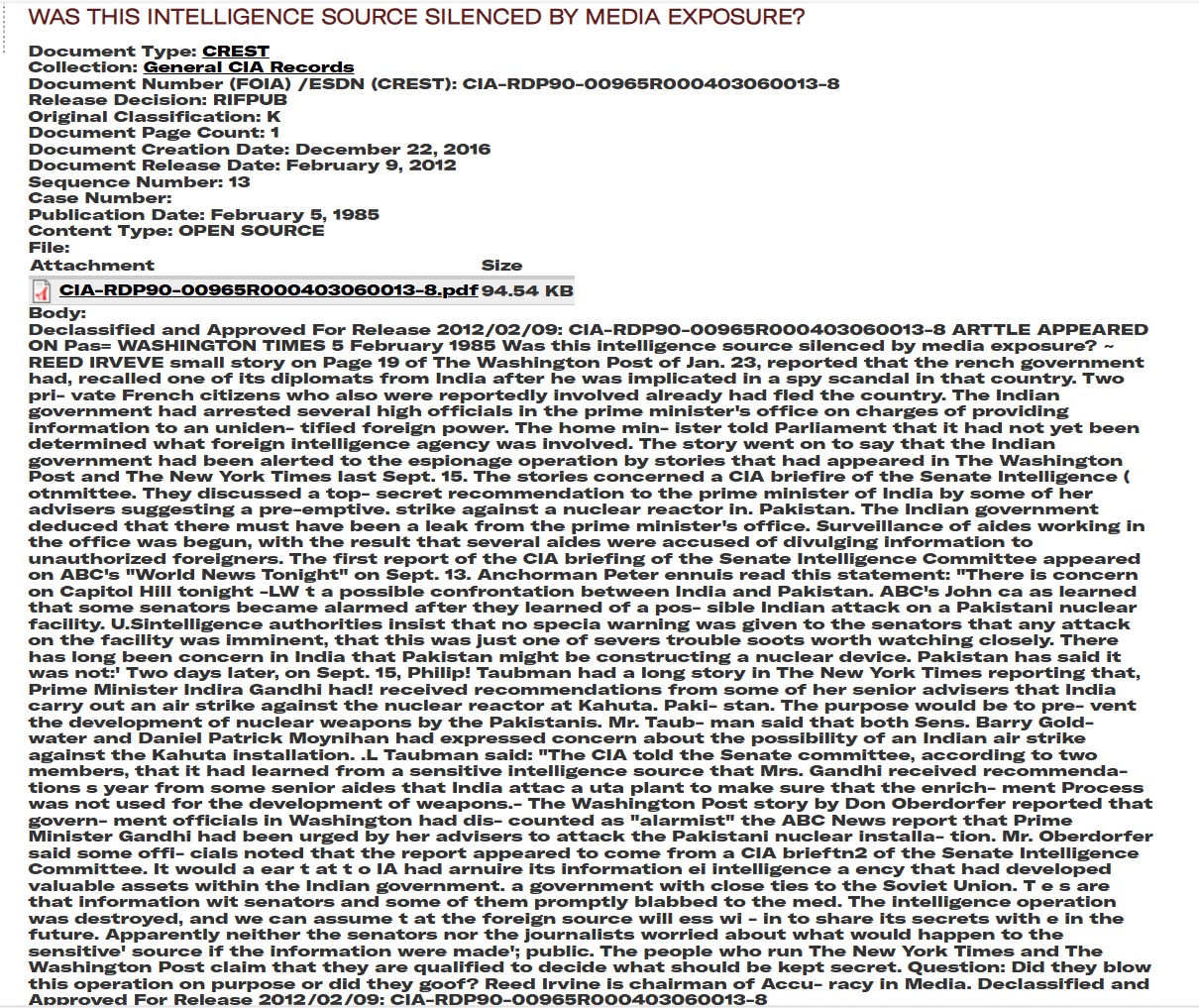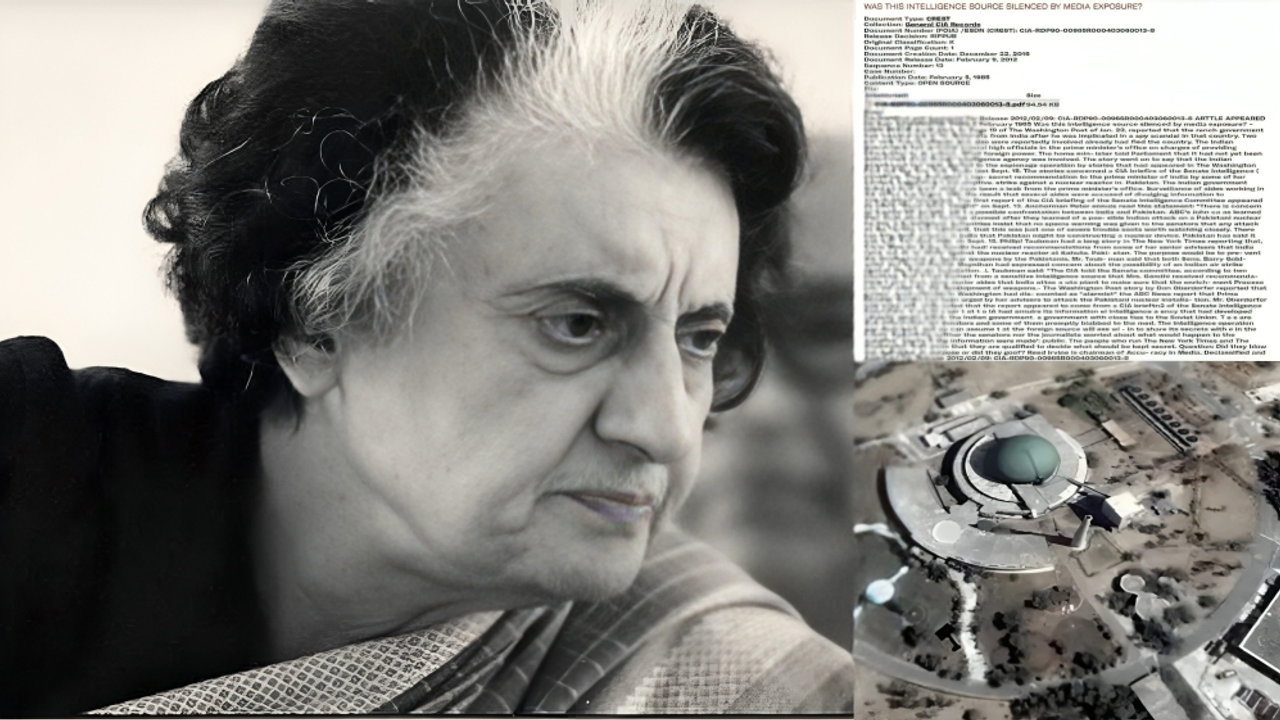Declassified CIA files confirm that in 1982, the US learned of India’s secret plan to bomb Pakistan’s nuclear site at Kahuta. A leak to the media exposed the operation, forcing India to abandon the strike.
In 1982, India had quietly prepared a military operation to destroy Pakistan’s nuclear facility at Kahuta, fearing that its neighbour was close to building an atomic bomb. The plan was top secret and involved a possible Indian Air Force strike, awaiting final approval from then Prime Minister Indira Gandhi.

But as now-declassified Central Intelligence Agency (CIA) files reveal, the plan never went ahead, not because of a change in India’s strategy, but because the United States learned of the operation and leaked it.
CIA discovered plan through insider in Indian government
According to documents declassified under the CIA's historical r
eview program, US intelligence agencies came to know about India’s intentions through a sensitive source inside the Indian government. The files mention that India was considering airstrikes on Pakistan’s Kahuta plant, which was believed to be producing weapons-grade uranium with help from China and other secret suppliers.

The information was passed on to senior US officials and members of Congress. However, some of it reached the media, including the New York Times, which reported India’s potential plans.
Public leak forces India to abandon mission
The leak quickly became a diplomatic flashpoint. While India was furious that its confidential military plans had become public knowledge, the US was equally upset because the leak exposed its intelligence gathering operations and possibly revealed the identity of its mole in the Indian establishment.
The exposure forced India to call off the planned strike. Pakistan, having learned of the possible attack, immediately boosted air defenses around the Kahuta plant and issued warnings that it would retaliate.
According to the declassified records, India’s leadership felt that the element of surprise was lost, making it too risky to proceed. The operation was shelved permanently.
Missed chance to prevent Pakistan’s nuclear bomb?
Pakistan eventually tested its first nuclear weapon in 1998, but many experts believe its weapons program had quietly succeeded well before that. Some Indian analysts have long argued that had the 1982 operation gone ahead, Pakistan’s nuclear program could have been stopped in its early stages.
However, the declassified documents do not confirm whether the operation had full political clearance or how far India was from executing it.
No proof of mole-hunt or post-assassination crackdown
While some unverified accounts have claimed that India launched a massive mole-hunt inside the Prime Minister’s Office after this episode, especially following Indira Gandhi’s assassination in 1984, there is no official record or evidence to support such claims in the CIA documents reviewed.
The files also do not suggest that the strike plan was still active in the weeks leading up to Indira Gandhi's death, as some later reports have speculated. The CIA records specifically refer to events in 1981-1982.
The Kahuta episode is now seen as one of the most significant missed opportunities in India's strategic history. It shows the complex web of military planning, international intelligence, diplomacy, and internal security vulnerabilities that shape a country’s national security decisions.


